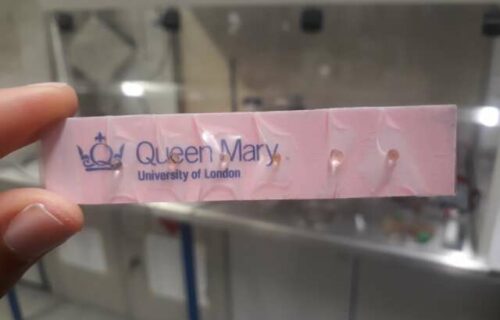One of the big obstacles facing doctors with elderly patients has been the lack of a simple test to indicate for presence of Alzheimer’s Disease (AD). A recent presentation at the American College of Neuropsychopharmacology’s annual meeting, held December 2004, may change all that. A study conducted by researchers from Columbia University involved 213 seniors with minimal to mild cognitive impairment (MMCI).
The test group’s average age was 68 years at the start, and they were followed for an average of four years. When they first came in they were asked to identify aromas from over 40 common sources. It transpired that an inability to name ten of these aromas proved highly significant in identifying those people who were more likely to develop AD. The test is significant because of its ease, speed and most of all, accuracy. The findings were so significant it looks as though physicians will have a test they can administer in their office to decide whom and when to refer MMCI patients for further treatment.
The inability to detect these ten aromas were found to be highly predictive of the onset of AD:
* Clove * Leather * Lemon * Lilac * Menthol * Natural gas * Pineapple * Smoke * Soap * Strawberry
The researchers state that more research is required to confirm their findings but if an elderly person you know is unable to identify these aromas in a blind test why not suggest they visit their physician for a proper medical check-up? If the test really does indicate early onset AD, now is the time to seek medical help, while options are still available.
Update April 2021

Credit: Queen Mary, University of London
A new smell test developed by Queen Mary University of London researchers has been found to be easy to use in patients with Parkinson’s disease, and could also be helpful in diagnosing COVID-19 in the broader population.
Smell tests have the potential to support the diagnosis of certain neurological conditions, including Parkinson’s and Alzheimer’s. Unfortunately, these tests are not widely available, expensive, and take too long to administer in routine healthcare settings.
To address this problem, the team developed a novel smell testing kit which uses capsules of aromatic oils placed between two strips of single-sided tape.
To take the smell test, the capsules are simply crushed between the fingers and the tape strip peeled to release the aroma contained within the capsules. Based on a person’s ability to recognize these smells, a score would be generated that can be sent to their GP if they are experiencing a loss of smell.
Lead researcher Dr. Ahmed Ismail from Queen Mary’s School of Engineering and Materials Science, said: “Our capsule-based smell test can assist in the rapid diagnostic of various diseases linked to the loss of smell. These include chronic neurological conditions such as Parkinson’s and Alzheimer’s disease, as well as COVID-19, which is known to affect the sense of smell.
“Being non-invasive and less stressful, the capsule-based smell test has benefits over the nose swab in diagnosing COVID-19. This is an advantage for testing children in particular, as they are typically horrified if they need to do a nose swab, and the test can be done in the comfort of their own home.”
The study, published in the journal Royal Society Interface, showed that, in a small group of eight patients with Parkinson’s disease, the smells from the tests were detectable. The participants also cited the relative ease process of rupturing the capsules, particularly for those with tremors, compared to the standard scratch and sniff smell test available on the market.
Dr. Ismail added: “Most of the smell tests on the market depend on using paperboard items treated with a fragrant coating called scratch and sniff, in which you need to scratch a card to release the odor. The problem with this approach is that the amount of odor released depends on the extent to which the individual scratches, something that might affect the outcome of the test.
“Our capsule-based smell test doesn’t have this problem because the amount of odor released is controlled by the amount of oil precisely encapsulated. The mass-production of our new test would also be cheaper than a scratch and sniff test.”